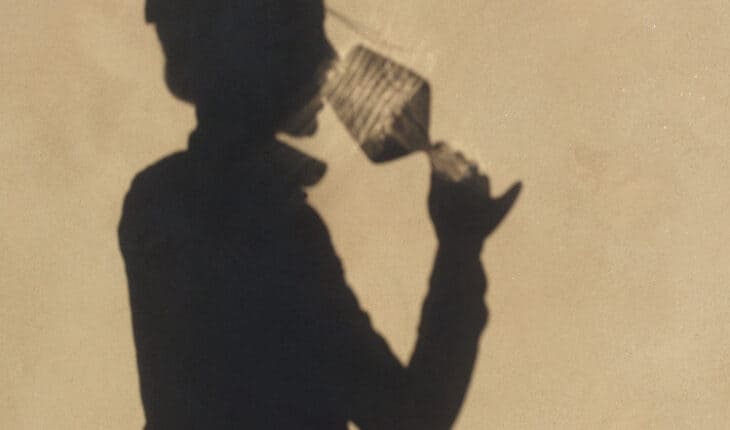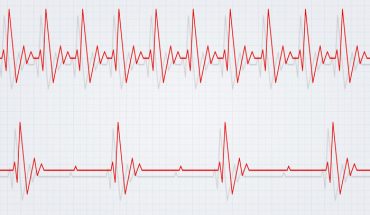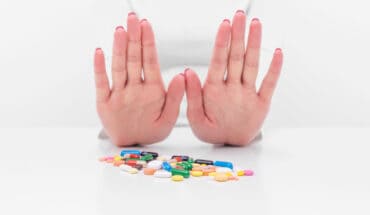Managing menopause, alcohol and the next chapter: Menopause or “The Change” as it was once referred to under hushed breath, is the start of a new phase in a woman’s life. It signals the end of her fertility and a life without menstruation.
The word ‘menopause’ was invented as recently as 1821, by French doctor Charles-Pierre-Louis de Gardanne. A rather surprising fact, given it describes a condition that affects half of the human population. Around 1700, doctors began to write about a condition they called “the end of menstruation as the time for the beginning of various diseases” where women experienced a huge variety of symptoms caused by a syndrome at a certain stage of their lives. Edward Tilt, author of the first full-length book on menopause in English – The Change of Life in Health and Disease [2nd ed 1857] thought that menopause could cause alcoholism or mania and could even make women murderously violent.
Today we know that during the lead up to menopause, a woman’s body produces less sex hormones, namely oestrogen, progesterone and testosterone, which trigger many side effects and ultimately signals the end of her reproductive cycle, leaving her infertile. A woman is said to have come to the end of this physical adjustment when she has not menstruated for one full year.
The average menopausal age for women around the world is considered to be between 45 and 55. The start of this transition, when menstruation becomes less regular is known as Perimenopause. During this phase, a woman’s body goes through a massive hormonal shift. While some women handle the menopausal transition reasonably well and seek the support they need from their GP, others experience worsening physical and mental symptoms like hot flashes, night sweats, memory loss, anxiety, difficulty sleeping low libido, low self-esteem and depression. It can be an extremely overwhelming, isolating and emotional journey.
Hormone replacement therapy (HRT), will often be prescribed by a GP in the form of a tablet or patch, to replace oestrogen and progesterone in the body and tempers the side effects; but many women suffer in silence; feeling ashamed and confused by the changes they experience during this shift in their wellbeing.
According to the Deloitte Women@work: a global outlook report, which is now in its third year, 20 percent of women who face difficulties related to menopause chose to worth through the pain or discomfort they were experiencing. Furthermore, nearly 20 percent of women who took time off due to menopause-related health issues did not reveal the actual cause for their absence, with 10 percent indicating that they felt uncomfortable disclosing menopause as the reason; with six percent expressing concern that doing so in the past had adversely impacted their professional development. For 5 per cent, their employer’s lack of support post-disclosure of their menopausal symptoms was a factor contributed to them leaving their employment.
“Social stigma and sexism have resulted in the menopause being undiscussed, despite the fact that it affects almost all women at some part of their lives and impacts their health, economic and social inequality.” according to the Engender’s Report 1.
In the absence of support and understanding, it is hardly surprising that some women will start to rely on alcohol as a crutch to help them navigate their menopausal symptoms, falling into a destructive cycle of reliance and addiction. Researchers today have established a link between alcohol and perimenopause.2, that very same syndrome which Mr Tilt observed in the mid-19th century.
Although reaching for the bottle may provide temporary relief from stress, consuming alcohol can actually worsen the symptoms during perimenopause and put women at greater risk of more serious health conditions such as osteoporosis and cancer.
Unlike men, menopausal women are more affected by alcohol because they do not have Alcohol Dehydrogenase (ADH) enzymes in their stomachs, which give additional protection against the harmful effects of alcohol. Moreover, women weigh less than men, which means their bodies absorb alcohol much quicker and experience its harmful effects in a far worse manner.
According to research, women are likely to experience more night sweats and hot flashes if they drink more than one drink daily. Their sleep is also likely to be affected and exacerbate the likelihood of insomnia. Alcohol causes the blood vessels to dilate and raises the internal body temperature.
In some studies, red wines are found to be particularly damaging for women who are going through their menopause. However, cutting down on alcohol or switching to less potent drinks like aperitifs is also a good option to prevent worsening symptoms.
In some cases, it has been found that alcohol can positively impact a woman’s health. But such effects are minute, to say the least, and pale into insignificance as compared to the adverse effects of alcohol abuse. So, it is encouraged that women are mindful of alcohol consumption, especially as they enter their mid-life.
Seeking help and making positive changes to your lifestyle during perimenopause
There is no shame is seeking support from a qualified physician to help you navigate menopause. Reach out to friends; create an open and supportive dialogue around the subject. Know that you are not suffering alone and learn more about how to balance your lifestyle.
Find a community: Instead of hanging out with alcohol lovers, start hanging out in a different social dynamic. Take care of yourself by indulging in healthy activities: You might be getting and feeling older but that should not be a barrier to trying new activities that promote your physical and mental health. Even spending ten minutes a day in following a meditation app such as Headspace can help you adjust your lifestyle. Start listening to some podacsters on the subject. You might find the content extremely relatable and often very entertaining, like Mamma Mia Out Loud.
Think about why you drink and identify your alcohol triggers: By understanding what motivates you to drink, you can learn how to stop those impulsive feelings. If you feel that you binge drink during social gatherings, try to avoid them until you feel more under control. Ask friends to switch from wine nights to coffee mornings and walks. If you reach for a glass of wine at the end of the day then actively replace that urge with a walk, a cold shower (for a dopamine hit) or find something else to immerse yourself in during that witching hour.
If you feel that you cannot make the changes alone, there is no shame in reaching out to professional support such as a rehabilitation service. Alcohol addiction is a complex condition and so there is no overnight miracle cure. However, it can be effectively treated at alcohol rehab through a comprehensive recovery programme. Alcohol consumption puts an enormous strain on your body, mental health and the people around you. Rehab for alcohol will help to unburden you of all that strain and enable you to begin taking control of your life again.
- Engender Parliamentary Briefing: It’s Time to End the Stigma of the Menopause.
- Menopause, ageing, and alcohol use disorders in women – PubMed (nih.gov)
- New lipid-based pathway discovered as key to memory formation - 25th June 2025
- Crucial link could explain how Alzheimer’s takes hold - 25th June 2025
- Understanding Your Mind Can Improve Daily Life - 25th June 2025







